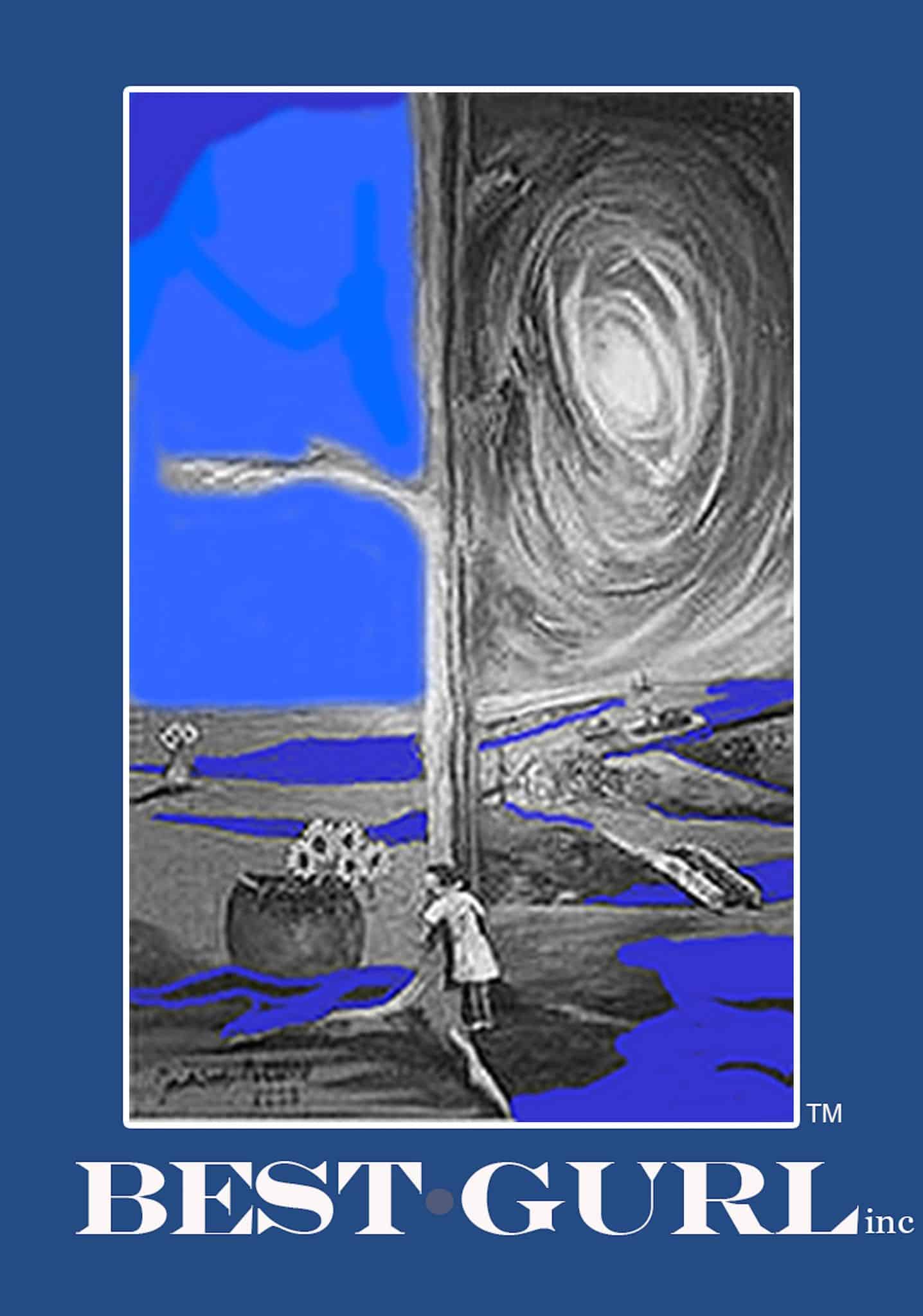

“NEVER” has finally arrived! Yay!!!
Daniel Snyder the owner of the Washington NFL team vowed he would “NEVER” change the team name of the Washington franchise. “NEVER,” he promised. Ever since I heard Mr. Snyder issue his “Never’ declaration I have not let the nickname of that team cross my lips, not once.
Even though my childhood football hero Bobby Mitchell played for them and worked in the front office until his death this year. I simply called them The Washington team in the NFL.
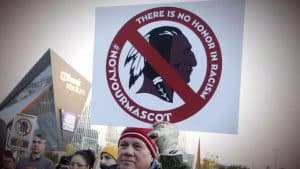
How could the name not be offensive? What if they had been the Washington Crackers, or the Washington Blackies. Would that have been offensive?
But the culture change taking place in the country is moving us past hollow words and promises and into action to continue to move the country past systemic racism.
Money, pressure, loss of sponsorships and culture change make things happen. In late June, DC politicians and business leaders announced the team could not build a new stadium within the district without a name change. In addition, FedEx, Nike and Pepsi were among the companies that reportedly received letters from shareholders asking that they no longer do business with the Washington team. That did the trick.
Let’s move forward. We know better. Cleveland and Atlanta the baseball teams know better. Florida State knows better. Things change when viewed under the lens of a new world. The past was not always blissful, especially when large groups of people were disenfranchised with little or no say-so as to how they were perceived and used as pawns by majority business entities to make money.
After I’d written this and turned it into “The Communicator” Emily Hedrick for posting, Washington made more headlines. At least 15 women who work or previously worked for the team has accused executives of sexual harassment from inappropriate conduct to butt grabbing,
The world is changing. The Washington team needs to change with it. It’s about time!
Pat Sullivan!
He was always nice to me and he didn’t have to be.
At John Carroll Catholic High School in 1966 in Birmingham, I was in 9th grade. He was in the 11th. He quarterbacked the football team, had a deadly corner shot in basketball that would easily qualify for today’s three pointers and… oh yeah he was outstanding in baseball.
On football Fridays, Pat and the other football players on varsity could come to school out of uniform, (white shirts, blue tie, charcoal gray pants) and wear their jerseys to class. They paraded like peacocks leading up to the afternoon pep rally and game that night.
On cool days they wore their letter jackets to school. They were cool, studs. Pat wore his with pride. I watched him. I studied him. He was special! Nice! I wanted to play with him. Pat would speak to me and give me a smile. That was important to me, more important than he knew. It was integration. I was a stranger in a strange land, navigating a new world, alone in a crowd. That smile meant and still means a lot.
Ultimately, I followed Pat Sullivan to Auburn. There, he again was, “the man,” still without the swagger. Without the arrogance that can sometimes come with being “extra.” He had an incredible career. He won the Heisman Trophy. He gave Auburn fans mental highlights that still flash across the screen in their heads today. He was #7.
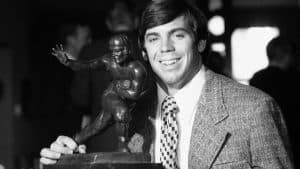
I walked on at Auburn. Played freshman ball and got the coaches attention. They asked Pat about me. Imagine, they asked the star player about this black kid who walked on. A kid no one knew. But Pat knew me. He knew me enough to say that I had gone to John Carroll and that I was a good student. Pat told them that everybody liked me and most importantly, I was fast. That spring, I got more than a fair share of repetitions. One day, the coaches put me in for a few plays with the first team offense against the first team defense. I’ll never forget it. It’s great as a young athlete to look up to someone and then actually get to play with him, even if it is “just practice.” It was much more than that to me.
Pat stepped into the huddle and said to the linemen, “Hold them out guys, this one is a touchdown.” THEN… he called my number. I still remember the jitters in my stomach as I jogged out to my position. Surveyed the defense. I got open on a deep post route. Pat let it go. It fell into my arms. I cradled it like a newborn. “Touchdown.” Just like he said. I’ve been a believer ever since.
After that spring, the athletic department awarded me a scholarship. I had a chance to actually play with Pat his senior season. Then the coaches decided to redshirt me. I wanted to play with him! Still, I dressed and traveled every game. What a treat for me! I got to watch Pat up close. In Knoxville, he led us from behind to win 10-9. We ran off the field like we had stolen something. We had a victory. At Georgia, he won the Heisman. What an afternoon. He was the field general, in command. The Auburn fans felt the electricity. His teammates felt it. They would run through walls for him. They believed in him. When Pat ran off the field I waited for him to trade hand slaps.
Other than that magical spring when he threw me the ball every chance he got, I never again played with Pat. But he made me feel like the closet teammate. Great people can make others feel as though their relationship is uniquely special. It’s one-on-one. I felt that way with Pat.
In 2007, I asked Pat if he would write the forward for my book, WalkOn My Reluctant Journey to Integration at Auburn University. He agreed. He wrote in part…
…I try to instill in our players some of the lessons I learned from those times, the journey of life and the foundation a young man can lay for his own future. I use Thom Gossom as an example of a man who had a dream, a vision of himself, that he never gave up against all odds,…
Thank you Pat Sullivan for nurturing that dream and helping to make me possible.
“Our history is our history.” The statement poured from my mouth as I talked to one of my good friends, an Auburn University alumnus about Auburn University athletic integration pioneers, Henry Harris and James Owens. “Who,” you may ask, as you were not around then, or your memory doesn’t extend back that far.
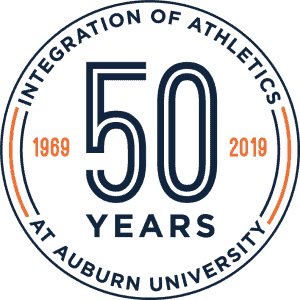
Let me school you.
First of all, recalling history can sometimes be difficult, especially for those who chose to be on the wrong side of that history. We should never run away from our history. When we do, we can very well repeat it. Maybe in another form or fashion, but we can repeat it. We should also never try to rewrite our history to make it fit the circumstances that make us more comfortable. In loving an institution, such as Auburn, which I do, it is imperative for me to also be objective about it. Our history is our history.
I am not a historian. However, I know what I have lived. I know what I witnessed. I know what I saw others go through. I know how those days of early sports integration made me feel. It’s now been fifty years. Auburn University will honor the feats of these two men with a commemoration during the University’s Annual Black Alumni Weekend.
Henry Harris, from Boligee, Alabama was the brave soul who entered first.
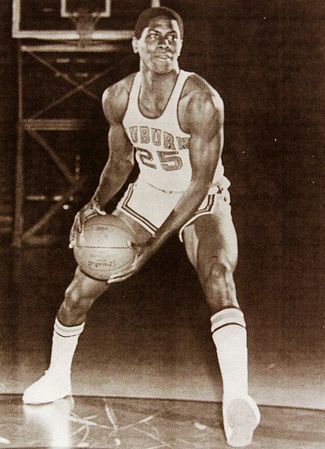
Henry broke the color barrier of sports integration at Auburn University in the fall of 1968. It was four years after Auburn University desegregated, due to a court order, by accepting their first and only black student at the time, Harold Franklin. He left three months later.
According to Sam Heys author of Remember Henry Harris: Lost Icon of a Revolution: A Story of Hope and Self-Sacrifice in America. Henry was not only the first black athlete at Auburn he was also the first black basketball or football player on scholarship at any of the, then seven, SEC colleges in the Deep South.
Heys writes that Henry’s signing was more than a college sports issue. “Historically it is important to remember that the integration of college sports was as much a civil rights issue as it was an athletic issue. College sports were the final citadel of segregation in the Deep South. Within a year of Auburn making the first move by signing Harris, Alabama, Florida, Georgia, and Mississippi State all integrated their football or basketball programs. LSU and Ole Miss followed within two years of Harris coming to Auburn.”
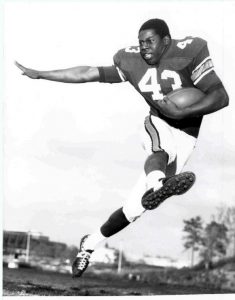
James Owens, from Fairfield, Alabama, walked through the door of sports integration at Auburn next. His chosen sport, football, cast an even brighter spotlight on his integration effort. James often confided to me, that without Henry, he would have left. James said, “I didn’t realize what I was getting into. I thought it would be about playing football where I had excelled all my life but this was more than that. I had to be more than a football player. Everything I did was monitored and watched. I was a hero to the blacks. I was a mystery to the whites.”
In 1968, Auburn essentially became the leader in moving toward equality and justice in the Deep South. Sam Heys writes, “Auburn should be proud of the leadership position it took in signing Henry Harris to a basketball scholarship.” Does that mean that Auburn did everything right? NO! There were plenty of rough patches. It does however highlight Auburn’s willingness to step forward before any of their brethren. It also means Henry and James were willing to take that step along with the University. The University, Henry and James became willing leaders in this great cultural experiment.
Did these men have great careers? On the field they were good. They were leaders, not superstars.
Statistically, Henry averaged 12 points 7 rebounds and 2.3 assists per game. He made third team All-SEC after the ‘71-‘72 season.
In the ‘71 and ‘72 seasons, James averaged 5.1 yards from scrimmage, 29 yards on kick returns, 10 yards on pass receptions and 4.1 yards rushing. Not bad considering the few times he got his hands on the ball.
But far more important than their statistics, they led the way. They led their teams and inspired others, including me. They represented the University well. They sacrificed for others. They opened the floodgates. Personally, they became my big brothers when I joined them at Auburn in 1970.
I witnessed their feats on the basketball court and the football field. I also witnessed their hardships, their loneliness, their courage and their despair. While I was at Auburn, Henry never had a roommate. James and I lived together his last year.
These men may never be in any Sports Hall of Fame. They should be! Does changing a segregated way of life compare with running a touchdown or grabbing a rebound? Are you kidding? Is there any comparison? I know my answer. They may never be included with the outstanding athletes whose names are carved in cement on the streets of downtown Auburn or whose busts are included in the SEC Hall of Fame. But they belong there. Plain and simple, they belong there.
Fourth and goal, the crowd was frenetic! The constant roar of the two hundred thousand historic fans measured at jet airliner decibels. It was a moment as big as any in modern history. The ball sat squarely on the two-yard line going in. The clock sat still at :03. The Reb defense, tired and gallant, dug in to protect its turf. The Rebs led 21-17. The world was watching. Everything hung in the balance.
It had been a long time coming!
. . . . .
It began in 2008, with the election of Barack Obama as President of the United States. Obama’s presidency was filled with vitriolic racism channeled through talk shows and entertainment news. It was all about political and economic gain, but with the country in a recession, it was easier to cast doubt on a man of color and what his aims were. “Muslim,” they had called him. In the last years of his presidency, violence flared up along the unspoken boundary between North and South.
It had actually begun decades earlier with the deregulation of the media. Fewer interests controlled most of the airwaves. Independent voices disappeared. News outlets needed to fill the day-long, twenty-four hour news cycle with features, talk and, of course, lots of advertising. Bobbing head commentators subbed for serious news.
The division of red and blue states was not far behind. Next came rancor, resistance, little congressional cooperation, and a government run by corporate interests.
The people? The people were mired in ignorance, led there by bought and paid for leaders.
Under President Jeb Bush, the divisions grew deeper and more pronounced. A chasm developed in the country, fueled by politicians needing to be re-elected. Jeb promised he wouldn’t be a worse president than his brother, “W.” He was. Bush’s directives, cronyism and the reversal of President Obama’s course sent the country back to the fearful, duct tape, shop till you drop, Osama Bin Laden, be fearful of those different from you, the terrorists are coming to get you days. Jeb infuriated the liberals. But something new happened. The liberals fought back. No one had counted on that happening. The liberals had never fought back before. But, flushed from their safe havens of intellectualism, the once staid liberals did something beside talk. “An eye for an eye,” became their war cry.
President Duvall Patrick, after much deliberation and counsel with his War Chiefs, decided that short of war, there was only one way to settle things. Elections? They no longer mattered. In 2025, no one believed in or trusted elections anymore. Elections could be bought or decided by a Supreme Court ruling. The controversial Supreme Court Ruling of 2010 allowing an endless supply of cash to flow into elections meant not only that elections could be bought, but also recalls could reverse elections, as with the short lived tenure of President Hillary Clinton. Neither of the three political parties was able to get a sixty-vote majority in the Senate. Things ground to a halt in Washington D.C.
The settlement was the one thing the southern republicans, the tea party people, the young, the gay, the independents, the helpless, the rich and the liberals could agree on.
During his 2025 State of the Union address, President Patrick announced the plan for a World College Super Duper Bowl I. Every four years, beginning in 2025, the country’s political differences would be settled by a football game.
The nation celebrated.
. . . . .
The North called timeout. Yank quarterback, Abdul Lewis, “the traitor” as the Southerners called him, because of his Alabama heritage, jogged over to meet his coach, the legendary Paul D. Jones.
Southern linebacker Co-Captains, Leroy Gilliam, and Kassan Lewis, Abdul’s younger brother, jogged over to their equally legendary head coach, Jake Snead from Ole Miss.
The bands on either side of the field broke into their respective fight songs. The Yank band played The Star Spangled Banner. The Reb band broke out a rousing version of Dixie. The 200,000 fans on both sides of the specially constructed stadium that sat geographically right in the middle of the country’s Mason–Dixon line, stood yelling and screaming, some with hands over their hearts, other drunk off their ass.
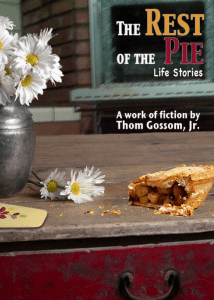
I was looking through some friend requests on Facebook, when a smiling face jumped out at me. Before I confirmed it, I looked to make sure it wasn’t Spam. I also checked out the mutual friends we shared. There were five, a couple of the names looked familiar. A closer look, and I discovered that I recognized three of the five. I looked again at the request, the name and the photo. I grinned a big grin. The kind of grin reserved for those who have touched your soul.

Robert! He was one of my guys. Back in the 1970s, after graduating Auburn and moving back to Birmingham, I worked as a supply teacher at the legendary Parker High School. I subbed in the classroom. The legendary principal, Bubba Thompson also made me his B-Team football coach. The Facebook request was from one of my players. Our mutual friends were also my players.
I only coached that one season, the siren song of television beckoned. We went 2-2-1. I can say as a coach I never had a losing season.
What has stayed with me and really matters are those guys and the relationships we built. They were young men searching for the person they would grow into, the way we all do at fifteen. They gave themselves to me.
Robert, a running back, always wore a smile. He was pleasant to be around. I wonder if his voice has grown into his body. He had a high-pitched voice. He loved to run the football. To be good, or great, a running back has to love to run the football. Robert wanted the ball.
The other guys on the list, Drake a linebacker, was smart, a thinker. Hardy, an offensive lineman, also very smart, a leader. Harrison, was a big kid, a running back, who would grow into a young man that could continue playing after high school. He was also smart.
I see Jake at Niki’s West in Birmingham. Niki’s has to be the most popular meat and three restaurant in Birmingham. Jake is a server. He was tall and rangy and played safety for us. His real name isn’t Jake, we renamed him after the Jake Scott who played at Georgia and with the Miami Dolphins. It is always good to see Jake.
The one recurring theme in my descriptions of these young men during their High School days is their smarts. They were good athletes, very respectful and also pursued their academics with the vigor of a big game against Carver.
They were wise enough to wonder what was next for their lives. The lure of big time college football was just spreading to the masses of southern black athletes. That was not in the picture. There was not the carrot of the NFL. There were no all-star camps to attend. ESPN was a thought in someone’s mind. My guys accepted this time in their lives for what it was, a wonderful season of life. One that would keep them bonded.
I am proud that I got to spend that year at Parker. Its reputation is outstanding. At the time it was a community public school. The black students who attended there would come from all over Birmingham. Most of my guys lived in the nearby community.
Whenever I am in Birmingham and I hear the word “Coach” directed at me I know it’s one of my players or students from that era. They are the only ones who call me “Coach.” It’s special!
I’m proud of my guys. They are all productive citizens doing what they can for their families, their communities and each other. I am so honored that they would want to keep in touch with the old coach, who only coached one season. My grin grows. They gave me one of the most wonderful seasons of my life.
It was August 2011! I’ll never forget counting down the days until I left. It was so sad…but it was so exciting, so major, I couldn’t wait for the day. I said my “proper goodbyes” to most of my friends. That morning I hugged my mom and my Nana, and dad and I got in my packed down car and started our 765 mile road trip to a place where I had only been once, and didn’t know a soul.
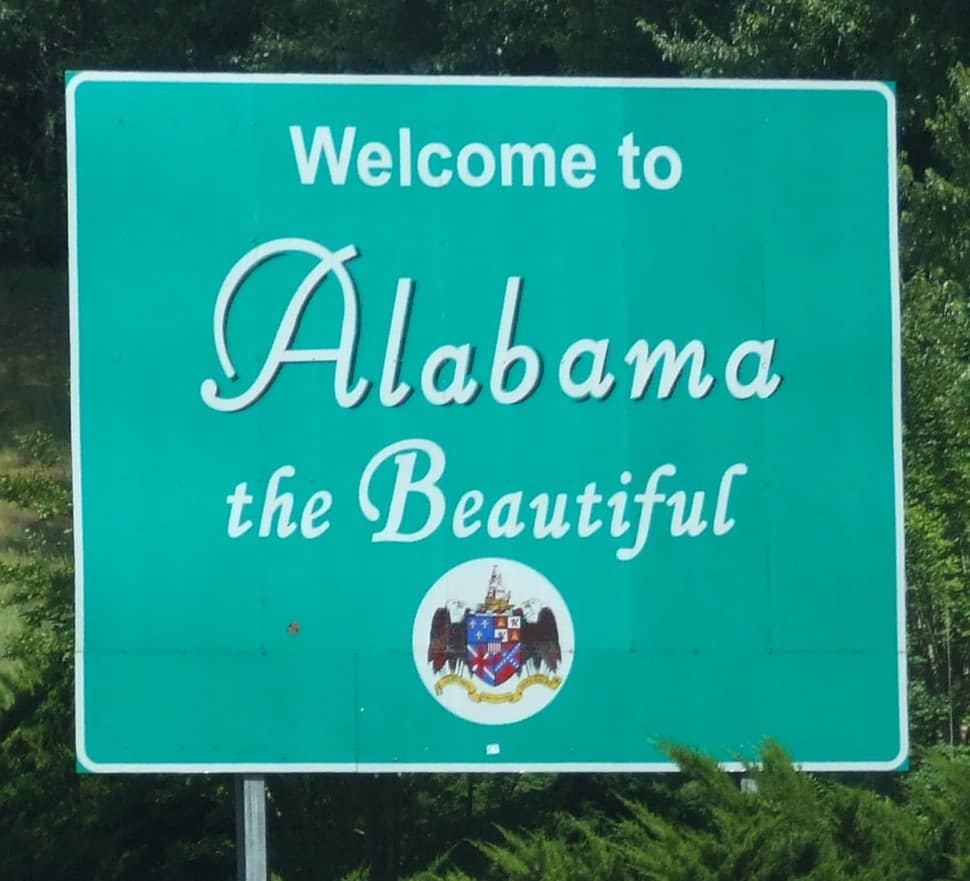
After ~about~ 12 hours in the car, dad and I made it to our hotel. I remember coming off the exit and seeing a Golden Corral (ugh! Haha), a WalMart, and then getting to the Jameson Inn. We had made it to Auburn, Alabama. This was my new home. Hungry, we asked where we should eat…the recommendation…Niffer’s! We got fried pickles and I signed the wall somewhere near the bar. After we ate, we went back to the hotel and settled in for the night. At some point, one of us made a comment about the TV, or clock, or cell phones or something being a different time. Without thinking I said, “well maybe we’re in a different time zone,” and after a few seconds, we realized we were! (lol)
Auburn had just won the National Championship in January, and you couldn’t drive by, or walk in, anywhere without the store, signs along the road, or the items in every store letting you know. I watched the game with a group of friends after attending a Fort Hill basketball game (I think?). When it was getting down to the end, we joked that whichever school won is where I would go to college. That’s not the reason I went to Auburn, but isn’t that funny?
I moved into my apartment, started my classes, made a few friends, and quickly got a job. I got hired at the Sonic on South College. It lasted less than a week. Turns out an unorganized store and $4.14 an hour wasn’t for me. I called and quit the Friday before the first Auburn game.
On September 3rd, Utah State came to Jordan-Hare. All I could do was take it all in. RVs full of people tailgating, cars parked all over the place, and people in orange (and some blue) were everywhere. It was an “All Orange” game, so I wore my new orange Auburn shirt. I climbed all the way to the top of the stadium, and for the first time- I saw the Eagle fly, listened & participated in the stadium-wide Auburn call cheers, and watched the marching band in awe. If you ever go to an Auburn game, DO NOT miss pregame, it’s the best part!
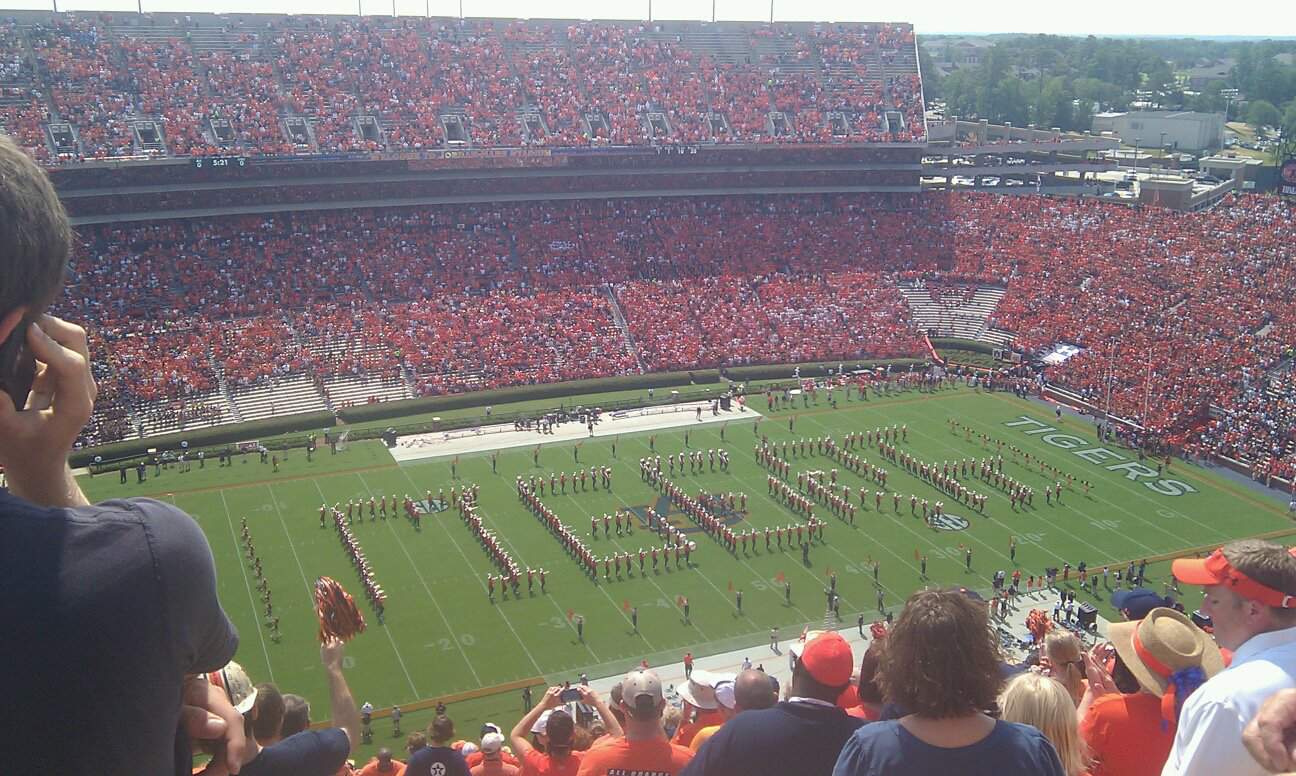
The Auburn Marching Band during pre-game.
The game went on, and boy, if that first game wasn’t a perfect metaphor for my new life as an Auburn fan. I’ve learned to hope for the best and expect anything. We beat Utah State 42-38, and I went out and bought myself a pair of orange Chuck Taylors in celebration.
Who knew I’d ever own this much orange?
Even though I didn’t know it yet, the “Auburn Family” was a real thing. My Auburn Family welcomed me, an outsider, and taught me all the things I needed to know. They welcomed me to their tailgates, they invited me to games with them, they taught me the cheers, the songs, the traditions, and they showed me what a real Auburn fan was.
I can’t believe that was seven years ago. There were so many new experiences and so many changes I have experienced since then. But as we prepare for another football season, I look back at those milestone moments as a Auburn student and fan.
There are many coaches to thank for a college football career that helped propel me to later careers as a professional actor, writer, and communication consultant.
Richard Porter, my high school basketball coach, guided me through the physical fundamentals of sports and the emotional experience of integration in the 1960s at John Carroll High School in Birmingham, Alabama. Hugh Craig was my first football coach also at John Carroll. He believed in me even though, in the tenth grade, I was playing organized football for the first time. At Auburn University, Coach Ralph “Shug” Jordan rewarded my hard work with a scholarship after I walked on my freshman year. Gene Lorendo, the offensive coordinator at Auburn believed in me and made me a starter on some great Auburn teams. Still, after all these great leaders had shaped and formed me, it was Coach Doug Barfield who stepped in and saved my football career at Auburn University.
Being awarded a scholarship after my freshmen year led to a redshirt year my sophomore year. Not playing was tough but I made the travel squad and watched as Pat Sullivan won the Heisman trophy that year. The next year we went 10-1 and created the legend of the “Amazins,” an Auburn team that is still celebrated today. The following year, in 1973 we slipped. Injuries, divisiveness, dissension, and bad attitudes crippled us. We went 6-6 after being highly rated. We were not a happy bunch. I ripped a hamstring and missed three games. Games that, maybe, we would have won if I had been able to contribute. When I returned after my injury, I did not regain my starting position and things spiraled downhill. I played very little.
Things got ugly. The coaches hardly spoke to me. I got little practice time and was demoted. Was some of it personal? Maybe. But being injured when needed on a struggling football team does not endear you to your coaches. I was miserable. Because I had been redshirted and was ahead in my degree program, I contemplated graduating and not playing my senior year. I talked it over with my parents who understood the drama I was going through but did not want me to leave.
Enter Doug Barfield to the rescue.
We were headed to El Paso, Texas to practice for the 1973 Christmas Day “Sun Bowl” game versus Missouri. Sitting alone on the bus, Coach Barfield chose to sit by me. That act of kindness caught me off guard. No one had bothered to talk to me in a while. Injured players become ostracized. I knew what I needed to do to get my job as a starter back, but what can you do if you are not playing or practicing?
There were rumors Coach Barfield would be promoted the next season to the offensive coordinator position. Coach had a gentle, folksy style. He led with it. “Are you coming back for your fifth year?” he asked. While keeping my eyes glued to the passing scenery outside the window and not looking at him, I responded that I didn’t know. He said, “If I am the offensive coordinator, I want you on the team.” I was skittish. Not many outside the game, know about the head games an athlete goes through during a college career. I turned back to look at him. “Will you think on it?” he asked. He was serious. I turned to look back out of the window and confirmed, “Yes coach.”
We quickly fell behind in that Sun Bowl game. I was inserted into the game and the two touchdowns I scored almost brought us back. It was a reminder of what I could do.
Coach Barfield was named offensive coordinator in 1974, and I did return for my senior year. What a year we had! We went 10-2 and finished number 9 in the country. I was the leading receiver. As a team, we were big, fast, and had some great athletes. I had the best time I’d ever had playing organized football. Coach Barfield was a player’s coach. He made the game fun for me. I could talk with him about football and about life. He gave me leadership responsibilities. I could suggest plays during the game. It was the best football time of my life.
Once, in the middle of a game, while jogging back to the huddle, I found a quarter lying on the field. I stopped and picked it up, then jogged over to Coach on the sideline and gave it to him. He could only laugh. We had fun and could still win games.
To this day, any player I’ve ever run into who played for Coach Barfield, love the man. He treated us like young men. He would sit and talk with us. I’ve always said that the 1974 team, particularly on offense, was the precursor of today’s game; big, fast, and we were respected as individuals, yet molded into a team. Coaches have the ability and opportunity to grow boys into men. I’m grateful to have had that experience under Doug Barfield.
Bryan, the truck operator for the lawn and pest control company, arrives for his monthly treatment of the lawn. He’s been coming now for about 5 years. He wears his customary, dirty, oil stained Alabama Crimson Tide cap pulled tightly and low on his head. The cap is old, worn and he is never without it.
Bryan’s ritual is to back his big, liquid, lawn treatment filled truck into the driveway and pull into the space we reserve for him. Before doing anything, he saunters over to the front door and rings the doorbell just to announce that he is there, a practice I think is pretty cool.
Bryan walks slowly. He talks a lot. He talks slowly, has a deep voice, and is never in a hurry. Did I say he talks a lot? It’s not good to get caught out in the yard when Bryan arrives. Thirty minutes to an hour, gone. If he was getting paid by the word…
Today isn’t my day!
Bryan catches me driving in. He waits at my car door. Ready to talk. I slowly exit the car. Before I can speak, he begins.
Bryan: You didn’t tell me. Man, I can’t believe you didn’t tell me!
TG: What?
Bryan: You played at Auburn!
TG: Oh. Man. Yeah. It was a long time ago!
Bryan: Naw! Really! Wow that’s cool, dude. But you know, I keep up with it, but… I’m not really into it like that.
TG: (Starts to walk off) Hey, Okay.
Bryan: I wear this Alabama cap. (Beat) I follow Alabama. (Beat) Watch all the games. (Beat) Wear my jersey on game day. (Beat) Get the kids all psyched up. My ole lady, she a Bama fan… (Pause) But, You know. Some people just can’t let it go.
TG: (Again starts to walk off) Yeah, I know.
Brian: (Following TG as he starts to walk toward the door) People see me with the Alabama cap, (he shrugs), but… I’m not really into it like that.
Brian: (Confesses) (Pause) Got a couple of stickers on my car, well at least four stickers…. I started to put a Saban sticker on it but… I didn’t want to overdo it.
Like this cap. Had it twenty years. I got a Alabama room in my house. Posters. Pennants. Got some neat stuff. My friend got his whole house decorated.
TG: Okay Bryan, I’ll see you. I’ve got to get to work.
Bryan: You know I try and keep it all on an even keel. Not get too much into it like that. You know.
Bryan: So did you want to play at Alabama? (He laughs). Hey! Hey! Hey! I’m just kidding. Hey! Hey! Hey!
TG: No. Not really.
Brian: Well, ya’ll got some good recruits this year. But Hey! We got another number one class. Hey! Hey! Hey! So, we starting out the season good. (Beat) Hey, you guys lost a tough one. Hey! Hey! Hey!
TG: Uh uh!
Bryan: You heard about this prospect in the second grade. I mean I don’t keep up with it that young. But…Think we gon offer him. Say he gon be real special. Let’s go ahead and sew him up. You know. May as well. Mama went to Auburn but hey, I betcha in ten years you see him in a Bama uniform. Hey! Hey! Hey! You know what I’m saying.
TG: Yeah.
Bryan: (pause) I guess I better get busy.
TG: Okay! See you buddy.
Bryan: (Heads toward the truck). Put my cap in the truck, don’t want it to get sweaty. My Daddy got this cap for me one time when he was on campus doing some construction work. Never been myself.
TG: Where?
Bryan: …to the campus. You know. One day I’m going. (Beat) What cha think about the game this weekend? We twelve point favorites. I don’t bet though. Saving up. Told the ole lady we gon get a new flat screen. Sit in my special room. She come in there some time. You know. Hey! Hey! Hey! She ain’t really into it like that.
It’s football season! The flags will be flying, notes will be passed in mailboxes, a family will skillfully navigate a football rivalry, and hopefully my next-door neighbor will disappear back into the witness protection program.
Let me explain.
College football season is special in the south. It brings out the child in many of us. Favorite teams, favorite colors, season tickets, tailgating, and talk shows are all staples of the Southern fall pastime. Living in a southern community that is not dominated by any one-college team but instead has supporters of many teams makes for a fun neighborhood once the games kick off. Most of my neighbors aren’t season ticket holders of any one team and don’t go to many games. They all have an affiliation and are occasional game visitors but the television is their dominant viewing pleasure.
On any given Saturday…
My next-door neighbor on the left side of us, an Auburn man, flies his big Auburn flag above the two boats in his boat house on the Choctawhatchee Bay. Two boats you wonder? One is for fun and one for fishing. Doesn’t everyone have two?
On windy days that big ole Auburn flag unfurls beautifully in the wind above the Bay. Kevin, the neighbor, and I visit often across the little fence in our backyards. He is a great neighbor.
Kevin visits Auburn for two or three games a year and on many other Saturdays during the season, he will host viewing parties at his home with lots of friends, beverages and good food. Neighbors drift up to his dock in their boats. Kevin always makes sure we are invited. I did say he is a good neighbor!
Kevin is Auburn through and through but he is not braggadocios or obnoxious. He’s even tempered about the whole thing, and whether Auburn wins or loses, he and his wife Laurie will often load up and go fishing after the game.
Then there’s Marvin.
Marvin went to Georgia. He is my golfing buddy. Marvin is a retired Air Force officer, a good guy and also a great neighbor. Marvin gets more upset over hitting a bad tee shot than he does over a football game. He has on occasion put a note in my mailbox with the score of the game when Georgia wins. The last time he did, it backfired on him. It was a game when Georgia spanked Auburn badly (take your choice of years). I went out to the street to my mailbox and there was a note with the score of the game in bright Georgia colors. I knew immediately Marvin was the culprit. Unfortunately for Marvin, it was a day when the other six guys who I played with at Auburn and who live in the area were all over Kevin’s house. It was a mini-reunion of sorts for us. I took the note in and showed it to them and suggested we go visit Marvin.
Marvin weighs in around 160 pounds. Every one of us easily top 200+. We rang Marvin’s doorbell and waited. I still see his face. None of the guys were smiling. They all had their arms folded and asked, “Are you Marvin? We all played at Auburn.”
He nearly s_ it his britches when I held up the note he’d left and asked in a brusque voice “Marvin did you leave this in my mailbox?” He stammered an inaudible response.
I spoiled it all when I couldn’t hold my laughter any longer and busted out in a loud holler. The guys started laughing, and finally relieved, Marvin realized it was a joke and he laughed. Everyone hugged him and he had the story of a lifetime. Marvin tells me he’s gotten lots of mileage out of that story with his Georgia friends and relatives.
Ken and Sarah have since moved to another neighborhood but their story is interesting. They lived two houses over. Ken is an Auburn grad and Sarah graduated from the University of Alabama. Do I need to say any more? They’ve made it work for nearly 30 years and two children. Ken says on the day of the annual game between Auburn and Alabama they remind each other to be nice. In Auburn’s six-game win streak during the early 2000s Sarah lucked out because Ken was deployed most of the time in the Middle East so she did not have to bear the brunt of his jokes. During the Alabama win streak of late Sarah says Ken finds it convenient to study since he is now involved in a PhD program. “I wish I could watch the game with you,” he fibs. She smiles and walks away. They have a rule. In their family the winner never gloats. A sly smile will do.
There are others.
The lawn service man, an Alabama fan, is deserving of his own story. That one will follow soon. Look for it.
The two Mississippi State families down the street live next door to each other. Between the two houses there are at least seven big pickup trucks. All are Mississippi State maroon. I want to know if the horns on the trucks ring like cowbells when you blow them. I haven’t gotten up the nerve to ask.
And that brings me to my next-door neighbor on the right side of us. Right is generally a word I don’t use in relation to him. He is a dyed in red Alabama fan that out of place in a neighborhood that is fairly easy going about their college football. On game days he dresses in red, hangs his ALABAMA banner out of his back deck, pulls his red vehicles with the red tags and the big white A on their front bumper, in prominent position in his driveway for others to see and struts and sticks his chest out in his red sweatshirt as if he is going to play that day. I doubt seriously if he has ever played, any sport, but don’t confuse him with facts. When Alabama makes good plays you can hear him in his house hollering and cheering up and down the street. When things don’t go well he again hollers but his language is not suitable for this blog.
Alabama has been on a roll these last few years, which has brought him back to college football. In their turbulent years of the late 90s and early 2000s he was “not too much into college football,” according to him. Funny, how winning changes things.
The first year we moved into our house, Alabama won and when I went out to get my morning newspaper, a la Marvin, there was a note with the score of the game in my paper. After that Alabama lost to Auburn six times in a row. There were no notes in my newspaper during those years. After those games he was nowhere to be found. His house would be dark, no lights, no sound, nothing. I told my wife the trauma must have sent him into the witness protection program, and that he moved to Arizona and took a new name.
The neighborhood is again buzzing, flags are flying and possibly notes will be passed among the neighbors. The Mississippi State trucks are rolling up and down the street, a mini-parade. Marvin is sharpening his crayons in anticipation of another Georgia victory over Auburn and if I’m lucky this year, Mr. Alabama fan will once again disappear into witness protection.
One yard. A big giant step. One yard and your life changes. One yard from glory.
Former ballplayers have the best stories. The good talkers can take an incident from a game many years ago and make it the centerpiece of speeches that they give long after they have finished playing. The “formers,” can be funny, heart wrenching, give inside looks at the teams in their respective eras, inside look at great stars. Randy Campbell is good at it.
Randy is one of the good guys. Today he is a financial advisor in his business Campbell Wealth Management. We serve on the Auburn University Foundation Board together. Imagine that two former football players. We made the transition.
I didn’t know Randy well before he came on the board a year ago. We played in different decades at Auburn. I knew of him. He played quarterback in the 1980s, on some great Auburn teams. He is a great speaker. Randy jokes he was famous for handing off to all-everything runner Bo Jackson. There is some truth to that. Bo was the truth so why not?
Still, Randy was no slouch. He is well remembered. He was 20-4 as a starting quarterback. In the 1983 Tangerine Bowl, he became the answer to a TV trivia question. “The 1983 Tangerine Bowl featured two Heisman Trophy winners, Bo Jackson and Doug Flutie. Who was the MVP?” The answer, Randy Campbell!
Back to Randy’s story. He relishes telling it. It’s like the secret only he thought of.
Here goes.
It’s the 1984 version of the Iron Bowl rivalry game Auburn vs Alabama. It’s a game that Bo will make famous with his “Bo Over the Top” leap at the goal line to give Auburn the victory over Alabama 23-22.
Randy tells the story.
“It’s third down, we’re threatening to score. I throw a swing pass out to Bo. Bo takes it down to the one-yard line. He almost scored. He came up a yard short. Of course he then goes over the top on the next play for the winning touchdown.”
I’m waiting for the punch line. Randy wears his “I’ve got a secret” look on his face.
“If he had scored on the swing pass, instead of “Bo Over the Top,” the headline could have read, “Campbell throws the winning TD in victory over Alabama.” Instead Bo was close, so close, tackled at the one-yard line. Man, I was one yard from glory.”
He looks me in the eye. I grin. It’s a great story. Crowd pleaser. Crowds like self-deprecating humor, especially from athletes who have been at the top of the food chain.
Sports is full of close, almost, damn near, shoulda, woulda, coulda, one play here, one play there type moments. If only such and such, stays safely locked in our memories many years later.
One yard from Glory!
I’ve embellished Randy wanting to be the hero. He is a pretty humble guy. All winning team oriented athletes will tell you, what mattered is that their team won far more than they lost. The team is what counts.
Randy says that. But like many of us “formers” he likes to have fun with his stories.
He says, “I told that story to Bo. I said, ‘Man, if you hadn’t gotten tackled on the one-yard line, the headline would have been “Campbell Tosses Winning TD” instead of Bo Over the Top.’ He wasn’t amused.”
Randy repeated, “Campbell to Jackson for the winning TD.”
He smiled.